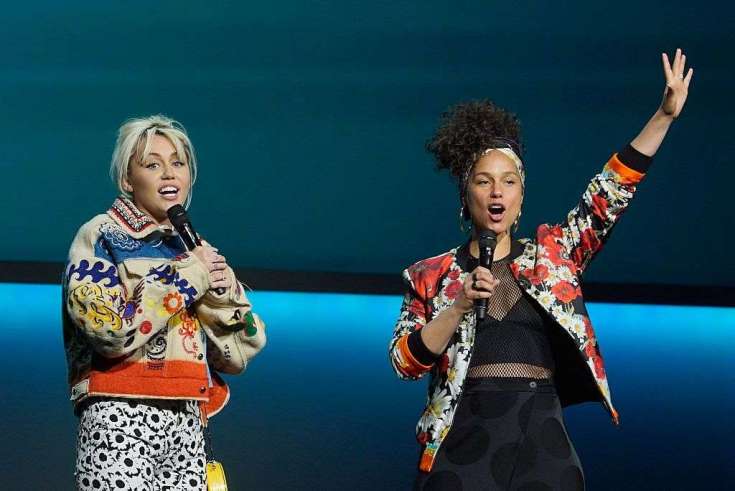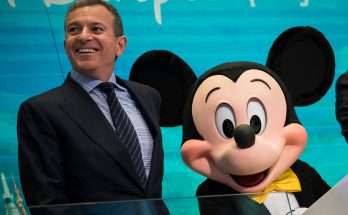
Miley Cyrus and Alicia Keys during the 2016 NBCUniversal Upfronts
Paul Drinkwater | NBCUniversal | NBCU Photo Bank | Getty Images
This week traditionally marks the TV Upfronts, when broadcast and cable networks showcase the new shows scheduled to launch in the fall as they negotiate with marketers to sell 80% of their annual ad inventory.
But this year, instead of star-studded events and ad execs crowding into cocktail parties, those presentations have been delayed indefinitely. Neither side is ready to start negotiations: Production stoppages are preventing broadcasters from completing their full show lineups, and advertisers want to hold off on making any long-term commitments given the uncertainty around the pandemic. Instead, broadcasters are bracing for unprecedented ad cancellations in the third quarter.
A new report from Advertiser Perceptions forecasts that Covid-19 will cut 33% from Upfront commitments as advertisers shy away from long-term commitments and shift to short-term buying. Of the more than 150 advertisers surveyed in early May, half say they feel they can replace the reach of linear TV with ads within streaming services and digital video ads. And 41% of the surveyed advertisers say that networks will be forced to abandon the Upfront model of committing to a year’s worth of ad buys in advance.
Horizon Media Chief Investment Officer David Campanelli projects that 20% to 30% of ad commitments will be canceled in Q3. Most advertisers have the option in their contracts to cancel up to 50% of their ad spending, but typically 5% or less is canceled. While marketers usually have to decide whether and how much of their ad commitment to pull by 60 days before the start of the quarter, this year a number of major marketers are pushing for more time, and getting extensions through the end of this week.
“Some brands like Google will exercise their option to cancel as much as 50% of their ad commitments for next quarter,” said Michael Kassan, CEO of ad industry consultancy MediaLink. Many of the companies pulling back the most are in the hard-hit travel, restaurants, entertainment and retail sectors.
Kassan said some of the companies that are canceling some of their ad commitments will “want to re-allocate some of the funds intended for the Olympics and other sporting events, and some of them will want to shift those ads to sporting events when they’re scheduled later in the year. They could rebuy in the scatter market when they see what the market looks like.”
Now the Upfront ad buying period could be pushed back as far as this fall, with ads bought for the calendar year, rather than starting with new shows in the fall. EMarketer predicts that ad commitments will be lower and the networks will be more flexible about cancellations. The companies that could suffer the most from ad commitment cancellations are local broadcasters such as Nexstar, Gray and Sinclair.
In addition, the postponement of most live sports is hurting all the major networks plus sports-focused networks like ESPN and Turner.
Shift to digital
When marketers do come back, they’re expected to shift further from traditional TV advertising to digital formats, where ads can be more targeted and their impact can be better measured.
“Just as we’ve seen with e-commerce having a faster rise, over the last two months, I think the shift to alternative content platforms — ad-supported and subscription streaming — will also speed up,” said Kassan. “That shift of consumers will also drive the shift of ad dollars.”
The TV giants don’t have the leverage to demand firm commitments during a time of so many unknowns. “Flexibility is the new black,” he said.
But the shift does not necessarily mean advertisers are going to put all their money with the big digital platforms like Google and Facebook, as many TV companies are establishing a growing digital presence.
“There’s an outdated notion that you’re cutting to TV and you’re moving to Google or Facebook,” said Campanelli. “That’s a bit outdated because most linear TV and legacy media companies have a very significant digital presence now.”
For instance, Comcast‘s NBCUniversal has a set of tools known as “One Platform” for buying ads across TV and digital platforms, plus a mostly ad-supported streaming service, Peacock. Rival Disney has Hulu, the majority of whose subscribers are on its ad-supported plan. AT&T‘s Warner Media said it would develop an ad-supported version of HBO Max, and a number of industry experts say the company is looking to speed up the launch of its ad-supported option to address concerns of cash-strapped consumers and subscription fatigue.
We’ll hear more from the digital ad providers — and how they’re hoping to lure over traditional TV advertisers — when they host their “Newfront” ad presentations, which were rescheduled from May until June 22-26. They’ll happen virtually of course.
Disclosure: NBCUniversal is the parent company of CNBC.


